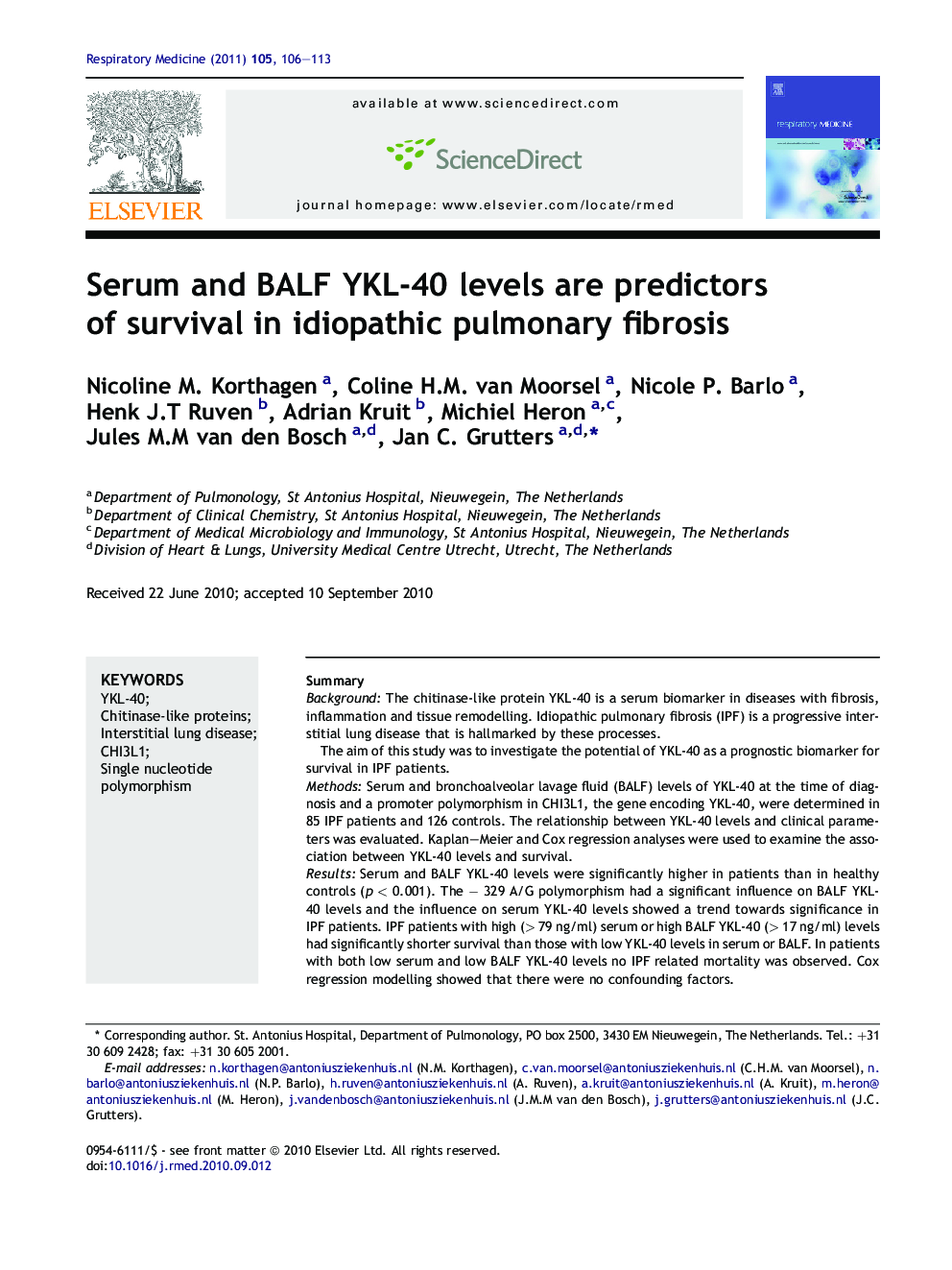| Article ID | Journal | Published Year | Pages | File Type |
|---|---|---|---|---|
| 4210441 | Respiratory Medicine | 2011 | 8 Pages |
SummaryBackgroundThe chitinase-like protein YKL-40 is a serum biomarker in diseases with fibrosis, inflammation and tissue remodelling. Idiopathic pulmonary fibrosis (IPF) is a progressive interstitial lung disease that is hallmarked by these processes.The aim of this study was to investigate the potential of YKL-40 as a prognostic biomarker for survival in IPF patients.MethodsSerum and bronchoalveolar lavage fluid (BALF) levels of YKL-40 at the time of diagnosis and a promoter polymorphism in CHI3L1, the gene encoding YKL-40, were determined in 85 IPF patients and 126 controls. The relationship between YKL-40 levels and clinical parameters was evaluated. Kaplan–Meier and Cox regression analyses were used to examine the association between YKL-40 levels and survival.ResultsSerum and BALF YKL-40 levels were significantly higher in patients than in healthy controls (p < 0.001). The − 329 A/G polymorphism had a significant influence on BALF YKL-40 levels and the influence on serum YKL-40 levels showed a trend towards significance in IPF patients. IPF patients with high (> 79 ng/ml) serum or high BALF YKL-40 (> 17 ng/ml) levels had significantly shorter survival than those with low YKL-40 levels in serum or BALF. In patients with both low serum and low BALF YKL-40 levels no IPF related mortality was observed. Cox regression modelling showed that there were no confounding factors.ConclusionsThe − 329 polymorphism was associated with serum and BALF YKL-40 levels in IPF patients. High serum and BALF YKL-40 levels are associated with poor survival in IPF patients and could be useful prognostic markers for survival in IPF.
